| Intl. Notebook | Mar 22 2018 |

Clearly they have consent issues.
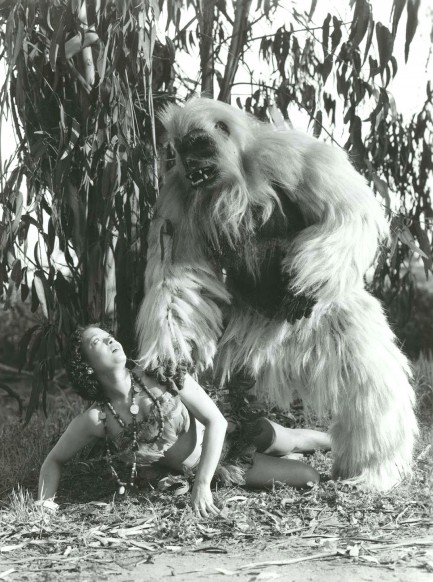
Monsters may be horrible but you can't fault their taste. To borrow a line from one of their number, they're automatically attracted to beautiful. It's like a magnet. We wonder if it's possible their need is an unconscious manifestation of the id of male Hollywood screenwriters. Or were the writers deliberately making commentaries about male power, nuclear paranoia, and environmental degradation? Well, those are questions for smarter people than us. We take monsters at face value. Maybe that's not what we mean—some don't even have proper faces. What we mean is we judge them as individuals. Most monsters are direct, like Pongo, above, trying to impress Maris Wrixon in the 1945 movie White Pongo, while some, on the other claw, are more circumspect. But the language barrier usually sabotages their delicate efforts. “I know an independently owned café that serves a killer macchiato,” comes out as a series of glottal grunts. “I loved La La Land too and I think the naysayers are mainly joyless jazz purists,” comes out as a sustained sodden hiss. Even if these vocalizations could give a true indication of the inner depths of a monster's personality, women generally wouldn't give them a shot anyway, because despite what they say, looks really do matter. What's a monster to do?
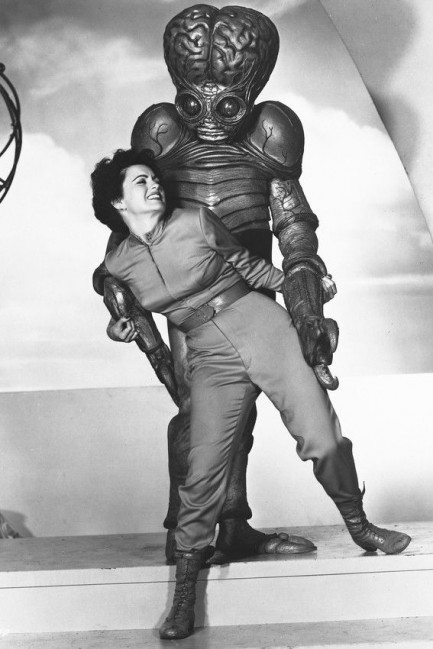 This Island Earth, with Faith Domergue.
This Island Earth, with Faith Domergue.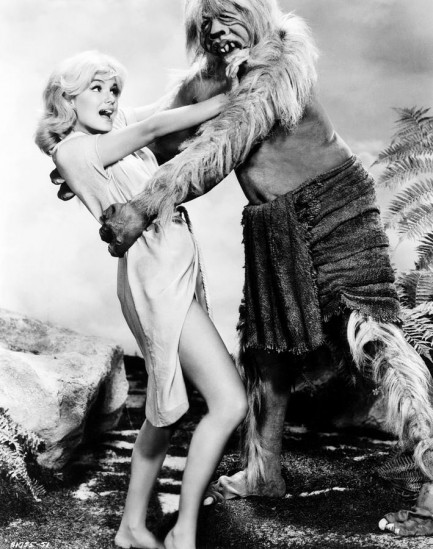 The Time Machine, with Yvette Mimieux.
The Time Machine, with Yvette Mimieux.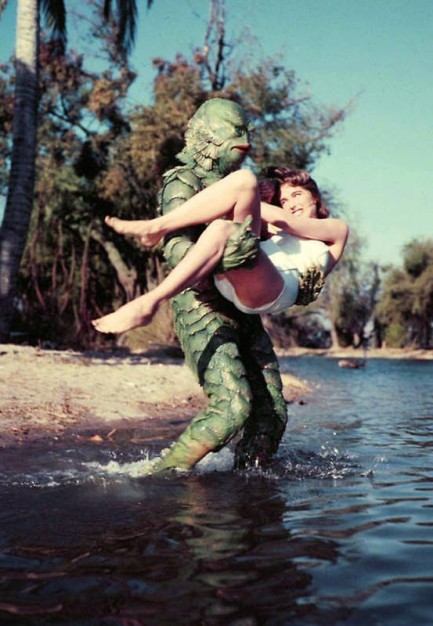 Creature from the Black Lagoon, with Julie Adams.
Creature from the Black Lagoon, with Julie Adams.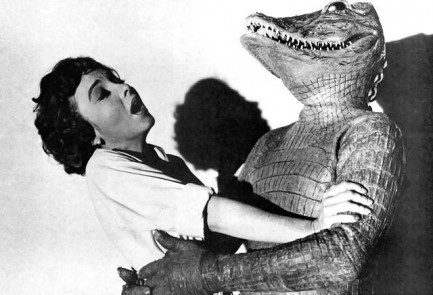 The Alligator People, with Beverly Garland.
The Alligator People, with Beverly Garland.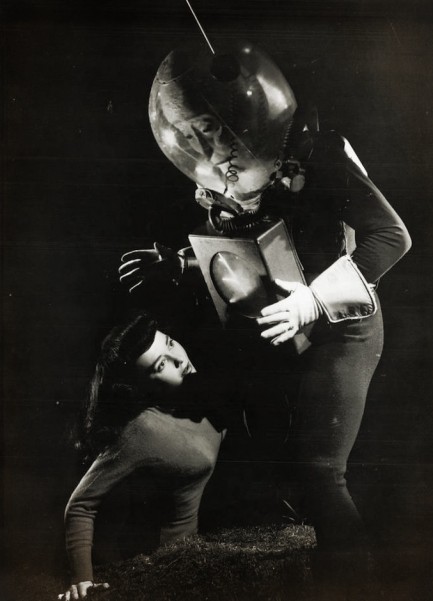 The Man from Planet X, with Margaret Field.
The Man from Planet X, with Margaret Field.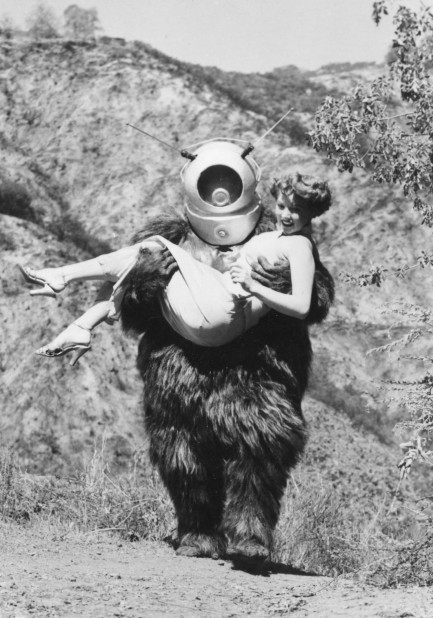 Robot Monster, with Claudia Barrett.
Robot Monster, with Claudia Barrett.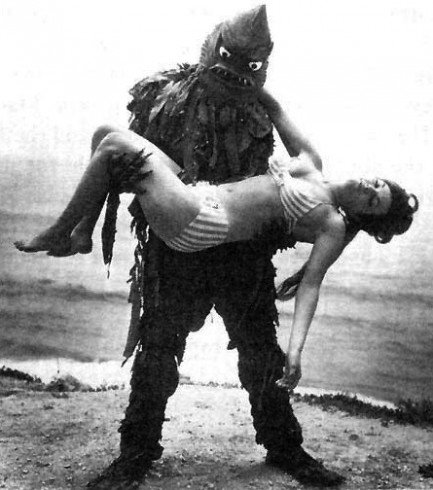 The Beach Girls and the Monster, with Sue Casey.
The Beach Girls and the Monster, with Sue Casey.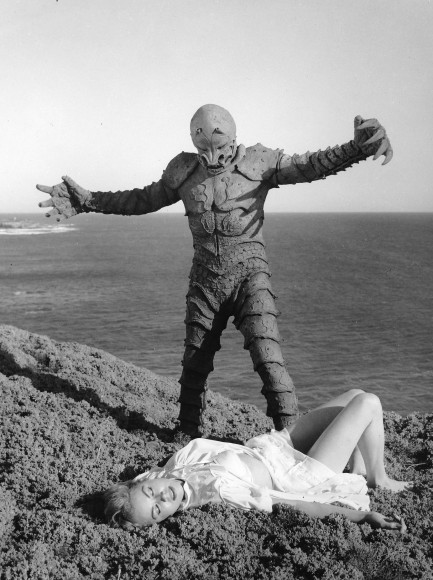 The Monster of Piedras Blancas, with Jeanne Carmen.
The Monster of Piedras Blancas, with Jeanne Carmen.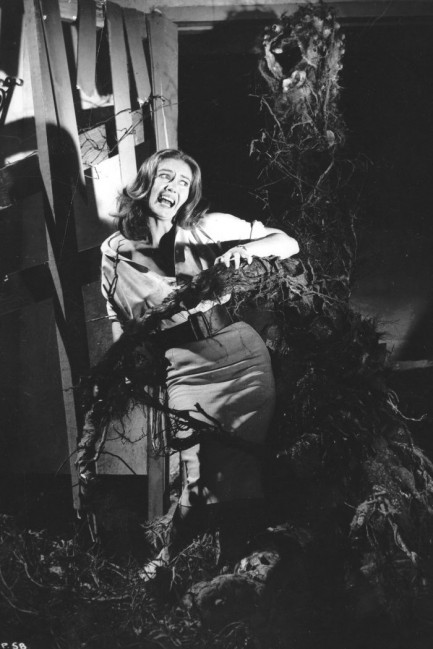 The Day of the Triffids, with Janette Scott.
The Day of the Triffids, with Janette Scott.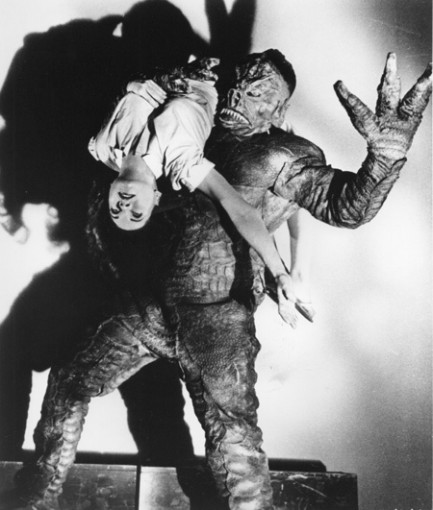 It! the Terror from Beyond Space, with Shirley Patterson.
It! the Terror from Beyond Space, with Shirley Patterson.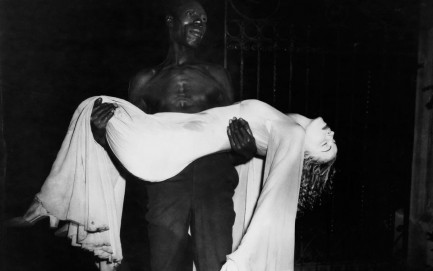 I Walked with a Zombie, with Christine Gordon.
I Walked with a Zombie, with Christine Gordon.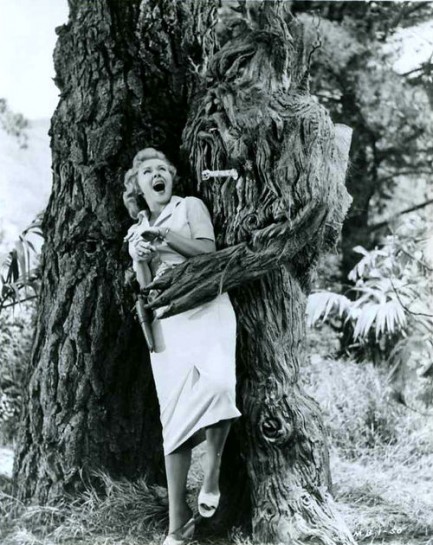 From Hell It Came.
From Hell It Came.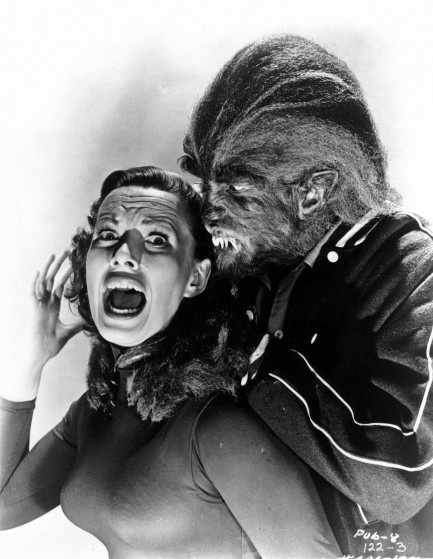 I Was a Teenage Werewolf, with Dawn Richard.
I Was a Teenage Werewolf, with Dawn Richard.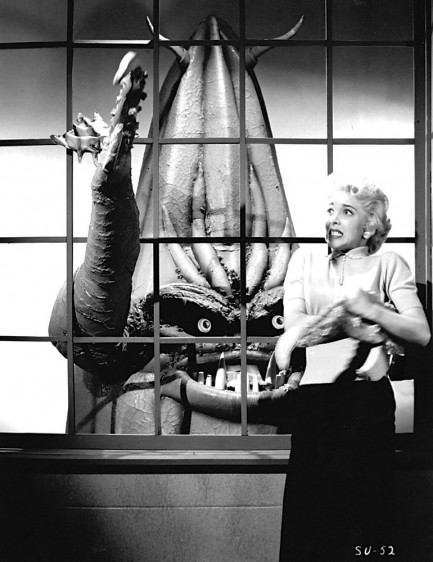 It Conquered the World, with Beverly Garland again crushing a monster's hopes for love and fulfillment.
It Conquered the World, with Beverly Garland again crushing a monster's hopes for love and fulfillment.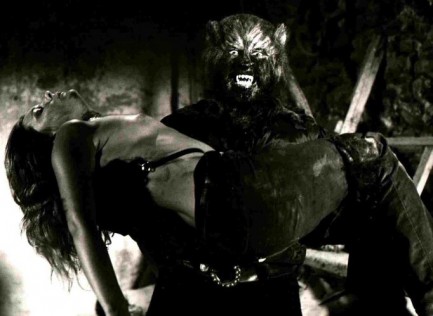 El retorno del Hombre Lobo, aka Night of the Werewolf.
El retorno del Hombre Lobo, aka Night of the Werewolf.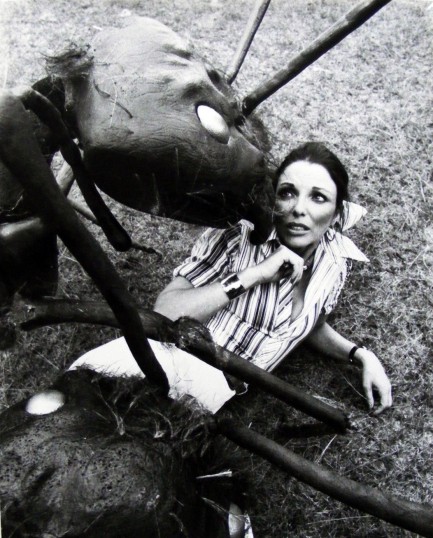 Empire of the Ants, with Joan Collins.
Empire of the Ants, with Joan Collins.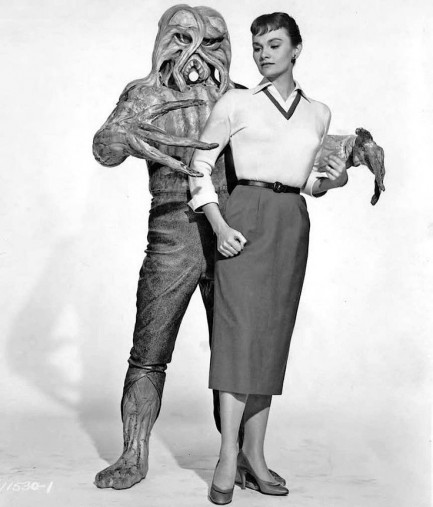 I Married a Monster from Outer Space, with Gloria Talbott.
I Married a Monster from Outer Space, with Gloria Talbott.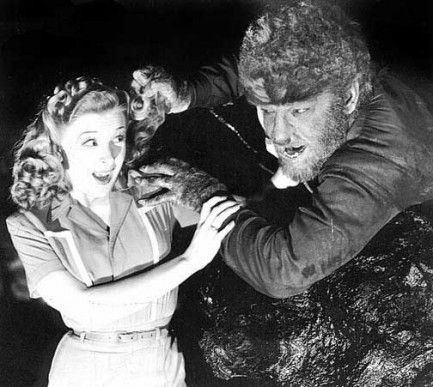 The Wolf Man, with Evelyn Ankers.
The Wolf Man, with Evelyn Ankers.



































































